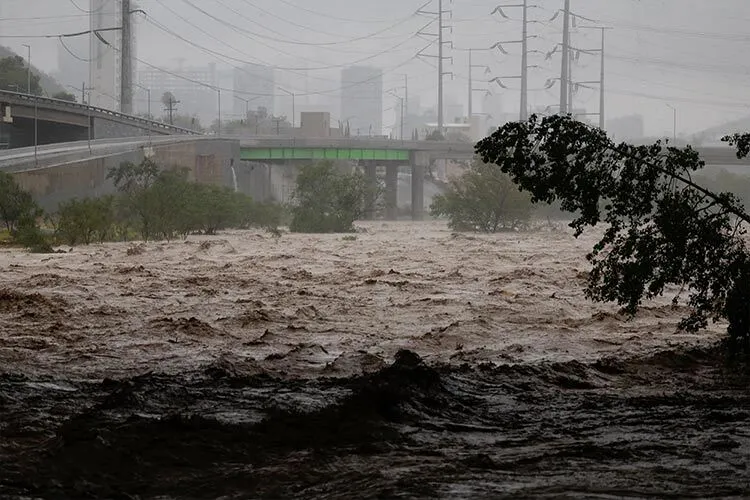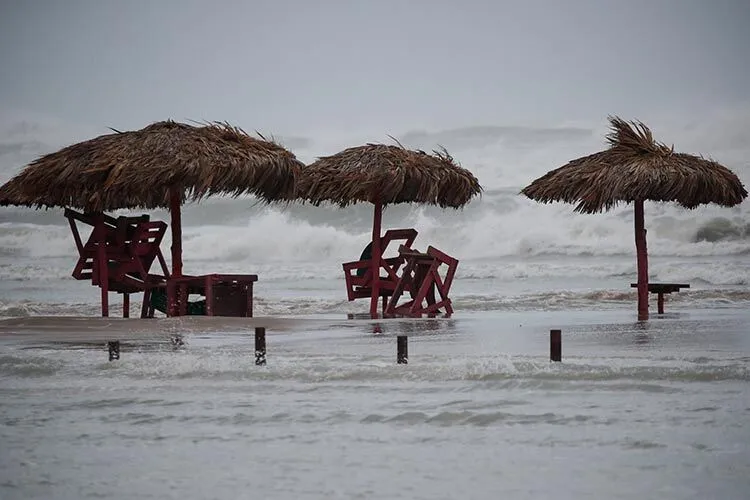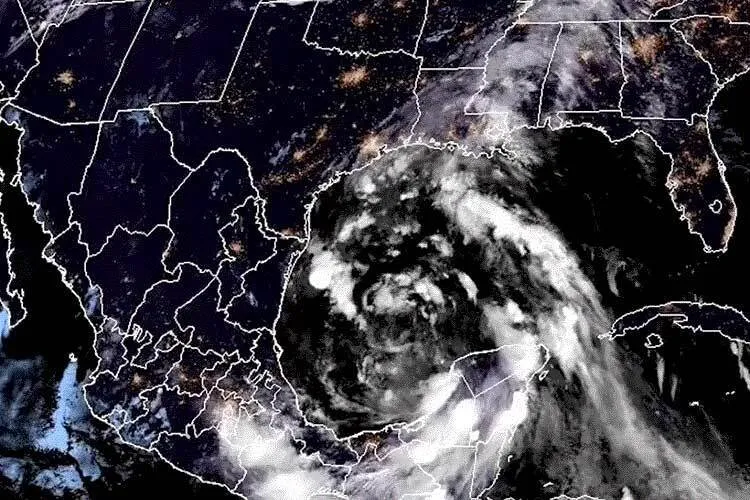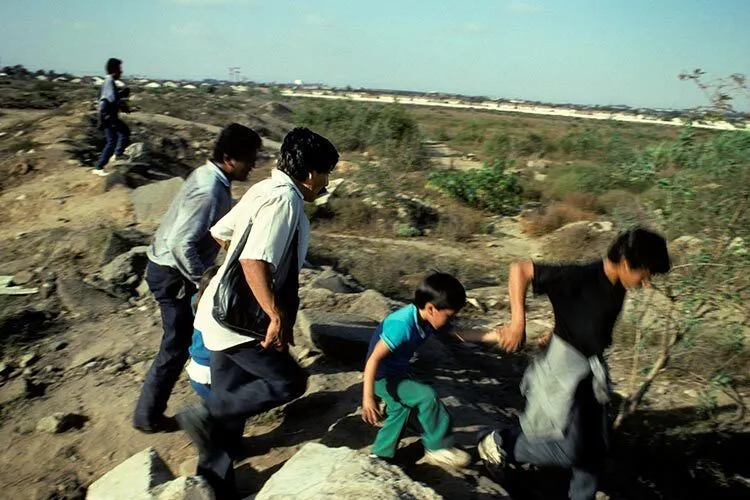Alberto, the first named storm of the 2024 Atlantic hurricane season, weakened to a tropical depression on Thursday, June 20, as it moved inland over northeastern Mexico. The storm brought heavy rains and flooding, resulting in four deaths, including three children.
One of the victims was later identified by emergency services as a 15-year-old boy who was swept away by a current on the outskirts of Monterrey.
In both Nuevo León, where Alberto caused the Santa Catarina River to overflow, and the coastal state of Tamaulipas, local authorities moved people to temporary shelters and suspended public activities.
However, the storm delivered much-needed rain to large areas of Mexico, where some reservoirs had water levels as low as 8% due to prolonged drought and summer heatwaves. Authorities in Nuevo León announced plans to redirect water from La Boca Dam as it neared its maximum capacity of around 40 million cubic meters due to the rains from Alberto.
Just a day earlier, officials had reported that the reservoir was only 35% full.
UN Weather Agency Anticipates Highly Active Hurricane Season
The World Meteorological Organization (WMO) announced on June 14, just ahead of the summer season, that it expects a very active hurricane season and emphasized the necessity of early warnings to save lives.
“High ocean heat content and the anticipated development of La Nina event are expected to fuel a very, very, very active hurricane season this year,” Clare Nullis, WMO spokesperson, told a briefing in Geneva. “It only takes one landfalling hurricane to set back years and years of socio-economic development.”
The U.S. National Oceanic and Atmosphere Administration (NOAA) has forecast a range of 17 to 25 named storms. The average is 14. Of those storms, eight to 13 are forecast to become hurricanes.
The Atlantic hurricane season, which lasts from June to November, has recorded above average activity for eight consecutive years, WMO said.
“Early warnings have helped save lives,” Nullis said.
“They’ve really cut the death toll dramatically, but even so the small island developing states in the Caribbean suffer disproportionately both in terms of economic losses and losses to life.”
Between 1970 and 2021, tropical cyclones –which include hurricanes– were the leading cause of reported human and economic losses worldwide, according to WMO.

Extreme Heat And Drought Will Become The ‘New Normal’
Brett Anderson, senior meteorologist at AccuWeather, said the extreme heat and drought Mexico experienced will become more normal due to climate change, citing temperatures above the historical average at 5.2°C (9.4°F) in the capital, which received barely over a third of the normal rainfall for this period.
Since March, Mexico has been experiencing temperatures 5.2°C above the historical average and has received just over a third of the normal precipitation for this period, Anderson added. “Climate change is clearly playing a role in this increasing heat.”

High Temperatures Will Trigger More Storms
Climate change is also expected to contribute to more storms over the Atlantic this hurricane season, as warmer ocean waters allow powerful storms to intensify more rapidly.
“The climate crisis is making extreme weather events such as hurricanes and tropical storms more frequent and severe,” said Save the Children regional advisor Moa Cortobius. Some 35 million children are living in exposed areas and are at risk this season in the Atlantic, she added.
The U.S. National Hurricane Center (NHC) stated that Alberto would continue to bring heavy rains and flooding to parts of northeastern Mexico, likely causing “considerable flooding” and potentially deadly landslides.
Forecasters had warned that Alberto, which brought rain and storm swells across the Gulf of Mexico, was also interacting with formations in the Pacific, together throwing more downpours on Central America, causing floods and landslides.
At least 22 deaths have been reported in Central America since the heavy rains last weekend. These include 13 in El Salvador, eight in Guatemala and one in Honduras, where authorities said over 900 were evacuated from their homes. (With information from Reuters)
















